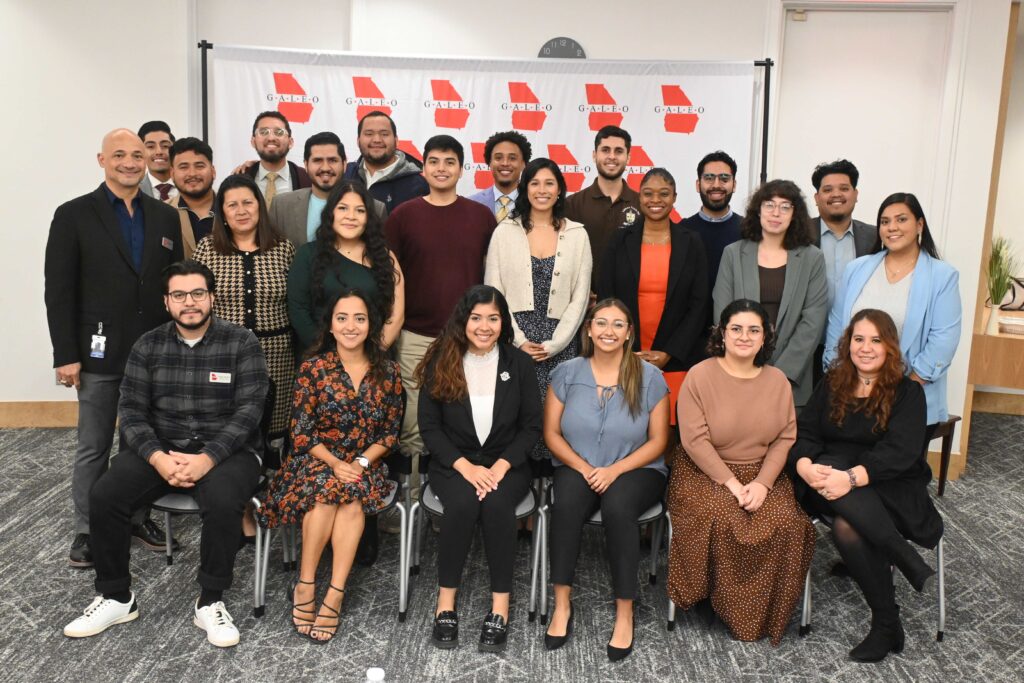CONTACT:
Kevin Perez-Allen, kperezallen@naleo.org
(202) 546-2536, (714) 499-4481
Marcus Silva, msilva@naleo.org
(213) 765-9427, (510) 456-5444
New Data Identify Most Convincing Messages to Motivate
Latino Participation in Census 2020
New research confirms high levels of anxiety within Latino community around 2020 Census and offers effective messaging to mitigate fears
Washington, D.C. – The National Association of Latino Elected and Appointed Officials (NALEO) Educational Fund today released new research and analysis on how the Latino community perceives the upcoming 2020 Census. NALEO Educational Fund commissioned the public opinion research firm Latino Decisions to conduct this study. The new data were presented by NALEO Educational Fund Chief Executive Officer, Arturo Vargas, during a briefing at the National Press Club in Washington, D.C. and provided a look into how Latinos are likely to engage with the questionnaire. The research placed emphasis on general knowledge about the census, barriers to participation, and testing outreach messages that motivate participation.
Key findings from the research included:
- Most Latinos have mixed feelings about participation in the census. While a vast majority of Latinos (77 percent) understand their community will benefit if more people participate, 75 percent of respondents also worry that the Trump Administration will use census information against Latinos, and 78 percent are worried the census website will be vulnerable to online interference.
- Education on the basics is important to generate participation. Latinos generally know the census is a population count, but there is significant misunderstanding and confusion about specific details. There are widespread misconceptions around what will be asked, and what the census does with the information.
- The census questionnaire itself creates a negative reaction. In our focus groups, when presented with a test form that replicated the Census 2020 questionnaire, participants expressed concerns about revealing specific information about themselves or their household members. In addition, nearly all shared the view that Latinos who are not citizens will not want to participate once they see the questions being asked. Moreover, non-citizens see more personal risks in census participation. Our survey revealed that 73 percent of non-citizens are concerned that immigration enforcement agencies will use their census information against them or their families. Similarly, non-citizens are less comfortable reporting personal information about themselves and their families on the census form.
- Younger Latinos will need extra encouragement to participate. Among younger Latinos (under age 40), 54 percent are uncomfortable providing names of others in their household to the census, while only 40 percent of those over age 40 share the same concerns. Almost half of younger Latinos (49 percent) believe the census is used to provide immigration and enforcement agencies with information to track and locate people, compared to only 29 percent of those over age 40.
- There is confusion about how to answer the race question on the census form. Many focus group participants left the item blank, while others marked a race category and left the origin detail section blank because they believed they already answered the question on the prior item that asked about Hispanic origin.
- More information about how to complete the census is needed. The research shows that traditional mail is the preferred method of response for Latinos overall, and specifically, non-citizens and Latinos over the age of 40. Latinos under 40 prefer to complete the census online. However, most 2019 focus group participants did not know how the on-line process worked. Learning more about how the online process would work led some participants to think that using the mail response would be faster and easier.
- Talking to friends and family about the census is effective. Personal relationships are an especially trusted source among Latinos, as many participants said they verify what they read online with friends and family or would contact them with census questions.
- Messages framed around standing up for the Latino community as well as local funding priorities performed well in both the survey and focus groups. In the survey, a message about the census providing an opportunity for Latinos to stand up, and say “we are here” and “we count” resonated with 88 percent of respondents. Eighty-four percent of respondents found a message about census data being used for local funding priorities to be convincing. Poster testing in the focus groups showed that responsiveness to the messages was strongly influenced by artwork and visuals.
- Latino organizations like NALEO Educational Fund have an especially important role as trusted messengers of the census. Across all demographic groups, Latino-focused organizations were the most influential messengers on the census: 80 percent said they would be more likely to participate if they were encouraged by a Latino or Hispanic community organization, with 43 percent emphasizing that participation was much more likely. Because of sensitivities around immigration, Latinos are looking to these groups for reassurance that it is both safe and beneficial for the community to participate in the 2020 Census.
Methodology:
A nationally representative sample of the Latino population was surveyed between October 8 and October 19, 2019, including an oversample of the undocumented immigrant population and Latinos residing in the Great Lakes region. Building on the survey research, focus groups were implemented across the country. These focus groups targeted those less likely to participate in the census such as younger adults, immigrants, and non-citizens. This multi-method approach allowed researchers to identify broad and sub-group trends across the diverse Latino population, examine how participants may engage with the actual questionnaire, and determine best messaging strategies.
###
About NALEO Educational Fund
NALEO Educational Fund is the nation’s leading non-profit, non-partisan organization that facilitates the full participation of Latinos in the American political process, from citizenship to public service.
